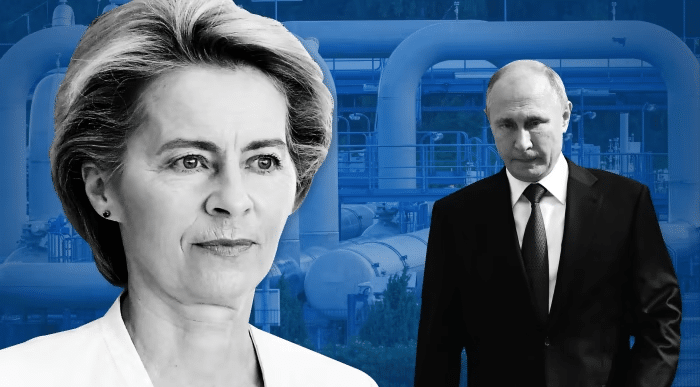
The European Union has adopted its 18th package of sanctions against the Russian Federation, marking one of its most comprehensive responses to date since the outbreak of Russia’s full-scale invasion of Ukraine in February 2022. The new package includes a wide range of economic and individual restrictive measures, focusing on energy exports, financial operations, military suppliers, and actors involved in the deportation of Ukrainian children.
In addition to the measures targeting Russia, the package also contains expanded restrictions against Belarus, seen as a key enabler of Russia’s military aggression.
The EU’s latest measures aim to curtail Russia’s energy revenues, which continue to fund the country’s war efforts. The Council has lowered the oil price cap from $60 to $47.6 per barrel, aligning it more closely with global market conditions, while also introducing a dynamic adjustment mechanism to keep the cap effective over time.
A key focus of this package is the shadow fleet—a network of vessels allegedly used to bypass sanctions. An additional 105 vessels have been blacklisted, bringing the total to 444. Sanctions now also apply to companies managing shadow fleet vessels, oil traders, and for the first time, the captain of a listed ship and an operator of an international flag registry. The EU has also added a refinery in India, with Russian energy giant Rosneft as a shareholder, to the sanctions list.
A new import ban now prohibits the entry into the EU of refined petroleum products made from Russian crude oil, even if processed in third countries—except for those from Canada, Norway, Switzerland, the United Kingdom, and the United States.
Furthermore, the EU has imposed a complete transaction ban on Nord Stream 1 and 2, halting any form of maintenance or future use of the pipelines. Czechia will no longer benefit from an exemption allowing oil imports from Russia.
In the financial sector, the EU is imposing a full transaction ban on 22 additional Russian banks, adding to the 23 already under sanctions. Restrictions are being tightened on third-country financial institutions and crypto-asset service providers that undermine EU sanctions or support Russia’s war through the Russian SPFS financial messaging system, an alternative to SWIFT.
The package includes a ban on transactions with the Russian Direct Investment Fund (RDIF) and its affiliates, further isolating the Russian economy from global capital markets. Software used in banking and financial services is also now subject to export restrictions, adding a technological layer to the EU’s financial decoupling from Russia.
As part of efforts to disrupt Russia’s defense supply chains, the Council has listed three Chinese entities and eight Belarusian companies involved in supplying dual-use or military-grade goods. A total of 26 new entities will face export restrictions, including seven from China and Hong Kong, and four from Türkiye, over their involvement in circumventing existing bans, especially concerning drone components.
The EU has also added €2.5 billion worth of goods to the export ban list, including computer numerical control (CNC) machines and chemical precursors for propellants. A broadened transit ban now covers critical goods that might otherwise reach Russia via third countries.
The EU continues to respond to reports of forced deportation and indoctrination of Ukrainian children by sanctioning another individual involved in Russia’s so-called “military education” programs. Over 90 individuals are now sanctioned in relation to these activities.
New listings also target Russian proxies in occupied territories, a business oligarch, a media propagandist, and a cultural actor accused of manipulating Ukrainian heritage.
The Council has introduced eight new listings related to Belarus’ military-industrial complex, which is seen as supporting Russia’s war efforts. Trade restrictions on Belarus now mirror those applied to Russia, and a new arms embargo has been enforced.
Belarusian financial institutions also now face a full transaction ban, extending beyond the previous limitations on financial messaging services.
To protect member states from retaliatory legal action, the EU has introduced new provisions shielding governments from arbitration proceedings under Bilateral Investment Treaties (BITs) initiated by Russian entities. These include non-recognition clauses, obligations for EU-wide consistency, and mechanisms for coordinated state defense.
According to the European Council, these new measures reflect a continued and unwavering commitment to Ukraine’s sovereignty and to a rules-based international order. High Representative for Foreign Affairs and Security Policy Kaja Kallas emphasized:
“Each sanction weakens Russia’s ability to wage war. The message is clear: Europe will not back down in its support for Ukraine. The EU will keep raising the pressure until Russia ends its war.”
The Council reaffirmed its support for a comprehensive, just, and lasting peace based on Ukraine’s Peace Formula and the principles of the UN Charter.
The legal texts corresponding to this 18th sanctions package will be published in the Official Journal of the EU and will come into effect upon publication.
The European Union remains open to additional restrictive measures should Russia continue its military aggression, and will continue its global diplomatic efforts to consolidate international support for Ukraine and ensure accountability for war-related crimes and violations of international law.